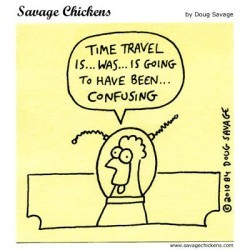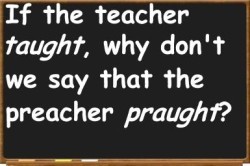Arlene Miller's Blog, page 51
April 22, 2016
STEM: The “E” Doesn’t Stand for English!
 This week I read about the first STEM elementary school in my town. The next town over has a Technology High. I read an article today about people graduating from Code Camp (that would be computer coding, not Morse code or secret codes) and getting jobs; I am not sure if they were bypassing college. This week, on the radio, I heard about the ten least useful college degrees in terms of getting a job; numbers 1 and 2 were (1) archaeology and (2) radio, TV, and film (my son’s major).
This week I read about the first STEM elementary school in my town. The next town over has a Technology High. I read an article today about people graduating from Code Camp (that would be computer coding, not Morse code or secret codes) and getting jobs; I am not sure if they were bypassing college. This week, on the radio, I heard about the ten least useful college degrees in terms of getting a job; numbers 1 and 2 were (1) archaeology and (2) radio, TV, and film (my son’s major).
STEM is definitely IN: Science, Technology, Engineering, Math.
Yet colleges are still complaining that their incoming students cannot write; businesses are saying the same thing and spending training money on remedial writing. I myself teach grammar review classes to corporations and other groups.
I have found that the level of grammar and writing competency among adults really varies. Many corporate employees, especially in the technology industries, speak English as a second language. However, their grammar and writing knowledge doesn’t seem to lag behind those who speak English as their first and primary language.
For most of us, our grammar education pretty much ends in junior high school. High school English classes are generally more concerned with literature and critical thinking. And some elementary schools and middle schools don’t teach much grammar, so students are never getting much grammar education at all.
Schools do, however, profess to teach writing. And students continue to write essays. The teaching of writing comprises many skills. Grammar, punctuation, and capitalization issues — the actual mechanics of writing — are but one aspect. I think, of course, it is an extremely important one.
Students are taught the parts of an essay: introductions and conclusions, body paragraphs, transition words. Perhaps they are taught some MLA format and how to write citations. They are certainly taught brainstorming, outlining, and those skills that contribute to good organization, which is very important in writing.
Grammar is taught to varying degrees, although the current Common Core standards include pretty complex grammar. But it doesn’t seem that much of it ends up in the standardized testing. When I was in school, a zillion years ago, one run-on sentence or sentence fragment guaranteed an F on the entire essay. Not true now!
Let us add to this discussion the fact that most of what is learned is lost by the next school year. Therefore, concepts need to be repeated and reviewed each year. And then, once we become adults and may not use these skills any longer, they disappear.
And are the schools teaching the difference between conversation and formal writing? To write to your audience? To not use slang and idiomatic language in academic writing?Maybe writing skill cannot be taught — or can be taught only to a point. Maybe it is a talent like piano playing. I think it is, but then you need to play piano to be proficient regardless of your innate talent. To be a good writer, it helps to write. Certainly, organization skills can be taught. Grammar, punctuation, and capitalization standards can be taught. Sentence structure can be taught. Yes, some people are better writers than others. Some people are better spellers and better at math too. But education in grammar and writing helps too. Doesn’t it?
So, STEM doesn’t include English . . . or art or music, and we know how important those are to education and our society. The question is, then, How much writing and grammar should be taught? Why?
I welcome your comments about this. Next week, I will give you my opinion about why, and how much, English should be taught.
——————————————————————————————————————–
Grammar Diva Announcements!
Do you have any ideas for posts you would like to see on this blog? I am always looking for good ideas! E-mail me!
Do you have something you would like to write about that would fit on this blog? E-mail me.
I will be teaching a Best Little Grammar Class Ever at Petaluma’s Copperfield’s books on Saturday, August 6 to celebrate the launch of the second edition of the book!
I will be participating in a roundtable discussion on September 11 at the Redwood Writers meeting. I will be talking about editing.
Would a group you belong to or work for like a lunchtime grammar review workshop? Contact me.
April 15, 2016
Oh, No! I Think I’ve Misplaced My Modifier!
 Misplaced Modifiers
Misplaced ModifiersGrammar can be pretty funny. Whoever thought grammar was serious business hasn’t looked at some of the cartoons and memes on Facebook! And they obviously haven’t attended one of my workshops!
One of the more humorous gaffes that occurs in grammar (mostly in written language) is the misplaced (and sometimes dangling) modifier. These are often hard to find and easy to miss — whether you are the writer or the reader — but when you do find them . . .
Most misplaced modifiers are prepositional or participial phrases that are in the “wrong” place in the sentence, meaning that they are not near the word they modify, but near another word that they appear to be modifying. Let’s review . . .
Modifier – A word or phrase that describes something in the sentence
Prepositional phrase – A short group of words beginning with a preposition: in the house, under the table, across the street, up the stairs, etc.
Participial phrase – A participle is a verb that is now being used as an adjective. A present participle ends in ing. A past participle is formed like the present perfect (with has or have) form of the verb: hopping bunny (present participle), hopping along, the bunny . . . (present participle in a short phrase), frozen pond (past participle), frozen solid, the pond . . . (short participial phrase)
Dangling versus misplaced – When a modifier is misplaced, it is sitting near (and apparently describing) the wrong word in the sentence. When a modifier is dangling, the word it is modifying isn’t even in the sentence!
In the English language, modifiers are generally sitting next to the words they modify. If they are in the incorrect place, humor can ensue . . .
Here are some misplaced prepositional phrases:
I heard about the meeting in the mens room. (the meeting is in the mens room?)
Did you read about the insects in the book? (the insects are in the book?)
The painting caught my eye on the wall. (my eye is on the wall?)
I found a desk for my friend with large drawers. (my friend has large drawers?)
I looked for the dresses that belonged to my grandmother in the attic. (grandma’s in the attic?)
Change the location of the phrase for clearer sentences! For example
In the mens room, I heard about the meeting.
The painting on the wall caught my eye.
In the attic, I looked for the dresses that belonged to my grandmother. Note that if you say “I looked for the dresses in the attic that belonged to my grandmother,” is still doesn’t make sense!
Here are some misplaced participles:
The dog crawled under the fence looking for food. (the fence was looking for food?)
I watched that movie laughing uncontrollably. (the movie was laughing?)
Sitting on a bed of rice, I thought the chicken looked delicious. (I was sitting on a bed of rice?)
Chasing a car down the street, I couldn’t catch my dog. (I was chasing a car down the street?)
Fix them like this: (there are other ways as well)
Looking for food, the dog crawled under the fence.
Laughing uncontrollably, I watched that movie.
Sitting on a bed of rice, the chicken looked delicious, I thought.
I couldn’t catch my dog, as he chased a car down the street.
Here are some dangling modifiers:
While still in diapers, my mother remarried. (Who was in diapers? Mother?)
Walking down the street, the flowers blew in the breeze. (The flowers were walking down the street?)
Freshly painted, I admired my work. (I was freshly painted?)
After sitting in the sun all day, a cool shower felt good. (A cool shower was sitting in the sun?)
Here, we need to put in the word that the phrase is describing:
While I was still in diapers, my mother remarried.
As I was walking down the street, the flowers blew in the breeze.
I admired my work on the freshly painted wall.
After I sat in the sun all day, a cool shower felt good.
The only way to avoid these grammar gremlins is to proofread your work – carefully!
Upcoming Grammar Diva Events:
Tuesday, April 19 – Corporate grammar workshop, Santa Clara (private)
Saturday August 6 – The Best Little Grammar Workshop Ever at Copperfield’s Books in Petaluma
Sunday, September 11 – Roundtable speaker (on editing), Redwood Writers, Santa Rosa
Watch for the Second Edition of The Best Little Grammar Book Ever! coming soon
April 9, 2016
Grammar Goofs from People Who Should Know Better!
 Several weeks ago I wrote a post about people on TV and their questionable grammar. I mean, these people get paid to speak, so they should do it pretty well — in my opinion. I have been watching pretty constant election coverage lately, and I have collected the following goofs. Yes, I know it is easy to make a minor mistake when we talk and we all do it. Nonetheless, there are certain things that make us cringe. Here are some of the goofs I noticed in the past couple of weeks:
Several weeks ago I wrote a post about people on TV and their questionable grammar. I mean, these people get paid to speak, so they should do it pretty well — in my opinion. I have been watching pretty constant election coverage lately, and I have collected the following goofs. Yes, I know it is easy to make a minor mistake when we talk and we all do it. Nonetheless, there are certain things that make us cringe. Here are some of the goofs I noticed in the past couple of weeks:
Don’t know who said this, but likely someone on MSNBC: Rachel or myself will . . . (should be Rachel or I)
San Francisco radio personality who shall remain unnamed: Someone must have saw it. (ouch!)
Same person as #2: She had sat it on the shelf. (ouch again!)
Rachel Maddow: Me and my . . . (as the subject of a sentence — didn’t she go to Stanford or something? And I do love her show.)
Syndicated financial radio show: Always didn’t believe . . . (huh?)
Late Hubert Humphrey: This didn’t work too good either.
Wolf Blitzer: The presidential candidates they will weight in . . .
Bernie Sanders: The differences between Secretary Clinton and myself . . . (should be ME!)
Gary Johnson, libertarian presidential candidate: Belong to you and I.
Some district attorney on the radio: He run over him, and he run away.
Donald Trump: . . . less votes . . .
Donald Trump: Try and bring in votes. (try TO)
John Kasich: Our parents hoped that us kids would be better off . . .
Donald Trump: Join Melania and I on the show.
Donald Trump: They picked it up accurate.
Democratic pundit on CNN, who I think was kidding: It’s a lot funner to win.
Haley whatever, the sparkly-eyed blonde Trump supporter on CNN: He is domineering the Eastern states. (Shouldn’t that be dominating?)
I will keep listening and cringing . . . so you don’t have to.
April 1, 2016
A Tense Conclusion: Common Mistakes
 Welcome to Part 4 — the final part — of the series about verb tenses. This post will review some common tense errors. In general we all do pretty well with tenses. However . . .
Welcome to Part 4 — the final part — of the series about verb tenses. This post will review some common tense errors. In general we all do pretty well with tenses. However . . .
Ever hear that present tense usage instead of past tense:
So I goes to the mall, and I sees my cousin. OR EVEN
So I go to the mall, and I see my cousin. INSTEAD OF
So I went to the mall, and I saw my cousin.
Sometimes people mix tenses that refer to the same time:
So I went to the mall, and I see my cousin there. OR
So I go to the mall, and I saw my cousin there.
There is a difference between past tense and present perfect:
I have taken a walk. PROBABLY SHOULD BE
I took a walk.
I have taken a walk implies it is repeated action: I have taken a walk every morning this week. (correct)
Past perfect versus simple past causes problems:
By the time I got home she had made dinner. (correct: two different times — use of past perfect)
When I got home she made dinner. (correct: same time — two simple pasts)
Future perfect can cause problems too:
By the time I graduate from high school, I will have been playing piano for twelve years. (yes — future perfect)
By the time I graduate from high school, I will be playing piano for twelve years (no — plain old perfect)
Ever hear this one? It is kind of colloquial:
I have known him since I am little. Blech!
I have known him since I was little. Yes!
Here is a problem with the progressive – present versus present perfect:
It is snowing for the past two days. Nope.
It has been snowing for the past two days. Yup.
When we talk about a movie we saw or a book we read, we generally want to use the past tense, since we already saw it or already read it. However, it is correct to use the present tense. You may have read it in the past, but the events in the book haven’t changed:
This book is about a girl and her brother. They are orphans and are adopted by a big family. Correct.
This book was about? No, because the book is still about the same thing.
One little quirky thing is the difference between might and may as helping verbs:
He may have gotten hurt during the hike up the mountain.
You might have gotten hurt during the hike up the mountain!
Do you see any difference? May in the first sentence implies possibility. You don’t know if he got hurt or not — or even possibly — if he did get hurt — his injury may be due to the hike up the mountain.
Might in the second sentence implies you didn’t get hurt, but whoever said the sentence thought it was a distinct possibility you would. Ah, the little nuances of the English language!
I have been collecting little grammar mistakes that I hear on radio and TV . . . for next week’s post! Meanwhile, If you comment on this week’s post and don’t see it up there for a while, it is because the Grammar Diva is taking a week off and is not taking her passwords with her . . . she thus will not be able to get into any of her websites!
March 25, 2016
I Brang You an Irregular Verb: Tenses Part 3
 I think I have always spoken with pretty good grammar. However, I do remember when I was a little kid, I thought the past tense of bring was brang, and the present perfect tense (past participle form) was have brung. My parents, who spoke fairly well, told me that it was brought and have brought.
I think I have always spoken with pretty good grammar. However, I do remember when I was a little kid, I thought the past tense of bring was brang, and the present perfect tense (past participle form) was have brung. My parents, who spoke fairly well, told me that it was brought and have brought.
I haven’t heard too many people say brang and brung lately, but I do hear lots of mistakes in the past tense and past participle form (which is used for all the perfect tenses) of many verbs in people’s speech. The past participle form is used for present perfect (I have brought), past perfect (I had brought) and future perfect (I will have brought). Oh, by the way, broughten isn’t correct either — and I think I have heard that one.
Although there is no bring/brang/brung, there is a ring/rang/rung. Many people say have rang, but it is indeed have rung.
When I use the word swum, which I don’t very often, people look at me as if I have made up a word. Yet swum is a word. I swim, I swam, I have swum. Yup.
Oh, why can’t all the verbs just add -ed for the past tense and part participle forms like walk and talk and all the other regular verbs? That would take some fun out of the English language!
Let’s take took. Took is the past tense of take. The past participle form is have taken. It isn’t have tooken, although I have heard people say it (I know I heard some of my students say it).
Here is a very common one: I have went. Nope. It is I have gone, but I went: it is go/went/have gone.
I often get questions about hang. What is the past tense of hang? It is hung or hanged? It is both. When there is a noose involved, the past tense is hanged (and have hanged). Without a noose, it is hung (and have hung).
The correct forms of drink are drank and have drunk, not have drank. Shrink is the same. Shrink, shrank, and have shrunk.
There are some other forms that are often misspoken:
The past tense of freeze is froze , but it is have frozen , not have froze.
The past tense of write is wrote, but it is have written , not have wrote .
The past tense of begin is began , but it is have begun , not have began .
The past tense of run is ran , but it is have run , not have ran.
Thank goodness for those verbs that don’t change at all, no matter what the tense!
Cost doesn’t change. There is no costed. It cost, it cost yesterday, and it has always cost .
Burst doesn’t change either. There is no bursted . It burst , it burst yesterday, and it has always burst.
Set stays set too. I set it over there, I set it there yesterday, and I have always set it in the same place.
Sit changes to sat, but stays as have sat, not have sitten!
If I lend you something, I lent it to you yesterday, and I have always lent it to you. Not lended. (or even loaned, because loan is actually to be used only as a noun.)
You wake late, but yesterday you woke late, and all week you have woken late. And then, if you are dragging, you probably dragged yourself into work. You didn’t drug yourself to work, and you have never drug yourself to work.
Oh, do I hear you begging to talk about lie and lay? Those crazy verbs!
Today I lie. Yesterday I lay. All week I have lain.
Today I lay my head down. Yesterday I laid my head down. All week I have laid my head down.
There are many, many irregular verbs in the English language. We haven’t even made a dent!
Please do take this post to all your friends . . . but do remember to bring it back . . . and remember . . .
If it ain’t broke(n), don’t fix it!
March 21, 2016
Yummy
March 18, 2016
Still Tense About Tense? Tenses Part 2
 Tense Talk
Tense TalkLast week we began a discussion about tenses. We talked about the six main tenses, their companion progressive tenses, and how to form them all. This post will talk about the time each tense refers to, as tense is all about time.
Here is a timeline of the six main tenses, from earliest to most future:
< Past Perfect Past Present Perfect Present Future Perfect Future >
Here are explanations of each of the tenses:
Present: Something that is happening now.
I take piano lessons.
I am taking piano lessons.
Past: It already happened, and it is over. (Note the difference between past and present perfect.)
I took a piano lesson last night.
I was taking a piano lesson last night.
Future: It will happen at some time in the future.
I will take a piano lesson tomorrow afternoon.
I will be taking a piano lesson tomorrow afternoon.
Present Perfect: It happened in the past, and it is likely continuing in the present. It may not be over. (Compare with past tense.)
I have taken piano lessons for the past five years.
I have been taking piano lessons for the past five years.
Past Perfect: It happened in the past before something else happened in the past. Note that it is used in a sentence along with a past tense verb. Don’t use it with another past perfect verb.
I had taken piano lesson for five years before I won the state piano contest.
I had been taking piano lessons for five years before I won the state piano contest.
Not: I had been taking piano lessons for five years before I had won the state piano contest.
Future Perfect: It will happen in the future before some other event in the future. Note that the future perfect is generally used with another verb that is present, but implies the future. Do not use it with a future tense.
I will have taken piano lessons for five years before I go off to college to major in music.
I will have been taking piano lessons for five years before I go off to college.
Not: I will have been taking piano lessons for five years before I will go to college.
Most people don’t think about what tense they are using, and usually things are okay. In a couple of weeks, we will talk about some of the tense errors that are made.
Note, too, that infinitives can be used in the present tense or the past tense:
I wanted to go to the mall yesterday.
I wanted to have finished my shopping by now.
I hope you are less tense after two weeks of tense talk! Next week, we will talk about some irregular verbs that make us tense when we use them in various tenses!
March 11, 2016
Tense About Tense?
 Verb Tenses
Verb TensesTense is one grammar issue that doesn’t generally make us tense—like commas, for example. Most of us just talk or write without thinking too much about tense. Tense, of course, refers to time and always concerns verbs. This post begins a short series of posts about tense and its issues.
How many tenses are there in the English language? Many people would say three: past, present, and future. Actually, there are many more than that. But let’s start at the beginning.
A verb has a few forms: Present, Past, Past Participle, and Present Participle. These are related to, but not the same as, tenses.
Present: The regular old form of the verb. Let’s use talk as an example.
Past: The past tense form of the verb. With regular verbs, we just add -ed to the present: talked. One problem is that there are so many irregular verbs in our language. More about that in another post.
Past Participle: Talked
Present Participle: Talking
Okay. Let’s use an irregular verb:
Present: Freeze
Past: Froze
Past Participle: Frozen
Present Participle: Freezing
Now, how many tenses are there? More than three. Most people would say there are twelve, and that is what we will say. However, if you want to get really fancy, there are more than that. There are six main tenses, and each one has a companion progressive (or continuous) tense, thus making twelve. Here they are, and here is how they are made using the verb forms above.
1.Present tense – Use the present form: I talk to you. The pond freezes.
2. Simple past tense – Use the past form: I talked to you. The pond froze.
3. Future – Use the auxiliary (or helping) verb will with the present form: I will talk to you. The pond will freeze.
Now, each of those tenses has a perfect tense:
4. Present perfect tense – Use the auxiliary verb has or have with the past participle form: I have talked to you. The pond has frozen.
5. Past perfect tense – Use the auxiliary verb had with the past participle form: I had talked to you. The pond had frozen.
6. Future perfect tense – Use the auxiliary verbs will have with the past participle form: I will have talked to you. The pond will have frozen.
Okay. Those are the six main tenses. Each one has a matching progressive or continuous tense, and often these tenses are more commonly used.
7. Present progressive tense – Use the auxiliary verb am, is, or are with the present participle: I am talking to you. The pond is freezing. (Our pond example doesn’t make complete sense in these progressive examples, but we will stick with it!)
8. Past progressive tense – Use the auxiliary verb was or were with the present participle: I was talking to you. The pond was freezing.
9. Future progressive tense – Use the auxiliary verbs will be with the present participle: I will be talking to you. The pond will be freezing.
10. Present perfect progressive tense – Use the auxiliary verbs has been or have been with the present participle: I have been talking to you. The pond has been freezing.
11. Past perfect progressive tense – Use the auxiliary verbs had been with the present participle: I had been talking to you. The pond had been freezing.
12. Future perfect progressive tense – Use the auxiliary verbs will have been with the present participle: I will have been talking to you. The pond will have been freezing.
There you have it! Some verbs aren’t used often in progressive tenses. Others are used mostly in progressive. Our examples of the past and future perfect tenses show how the form is made, but the sentences really need something added to them because of how we use those tenses.
Next week, we will see the differences among the tenses, how they are used, and the timeline showing where each belongs.
Oh, what about those other fancy tenses? We use them, but we don’t really think about them much. And yes, we can and do use them incorrectly sometimes. I am not going to delve into the other tenses (twelve is enough for now), but if you would like more information about the “past unusual conditional” tense, be my guest! http://www.edufind.com/english-grammar/conditional/
March 3, 2016
National Grammar Day 2016!
 March 4 is National Grammar Day! A whole day devoted to grammar . . . And here is our annual Grammar Day post.
March 4 is National Grammar Day! A whole day devoted to grammar . . . And here is our annual Grammar Day post.
Fifteen Things About Grammar
Virtually every written human language has developed rules for its use.
Way back in ancient Greece, Plato and Aristotle were interested in language and can be blamed for helping form the foundations of the parts of speech.
Latin became the language of Western Europe during the Roman Empire, and later it became the official language of the Roman Catholic Church.
The word grammar comes from the Greek word gramma which means “writing” or “letter.” This root is also found in other English words like autograph, paragraph, telegram, monogram, etc.
Grammar school got its name because it was the basic school where students learned to read and write.
In the Middle Ages, the language of the Church and official government documents was Latin. English was the language of the lower class and is a hodgepodge of Latin, Greek, German, French, and other languages.
On the island of Great Britain alone, there were between thirty and fifty distinct dialects of English. People who spoke one dialect couldn’t understand the others.
In the 14th century Geoffrey Chaucer began writing in English. However, it was not standardized. There was no great need for it to be standardized, since most of the population was illiterate.
In the fifteenth century the printing press made the language of the London middle and upper classes the standard for English. Those who disseminated information wanted it to be understood by as many readers as possible.
The first printing press in England began operation in 1485. The first book printed was Sir Thomas Malory’s collection of King Arthur stories known as La Morte D’Arthur.
By the 1700s, writers were compiling dictionaries and grammar books as English literacy grew.
A standard written English evolved. “Correct” English was often that spoken by the more educated. However, since the educated class included clergy and teachers, the standard spread; most people wanted to do business and communicate with one another, so standard grammar and spelling was necessary.
The standards were developed for effective communication, not to impress others. Dialects and distinctive pronunciations are OK in informal spoken language. However, written language should adhere to standards for better communication.
English is very tolerant of accepting new words and adds thousands of new words each year. This makes English the richest language for words and shades of meaning. It also makes the language difficult to learn for foreign learners.
Time Magazine has predicted that the word whom will be gone by the end of the 21st century. ( I hear you all cheering!
Thank you to this website for the info!
Some Quotes About Grammar
Nostalgia is like a grammar lesson: you find the present tense but the past perfect! – Attributed to both Owens Lee Pomeroy (1929–2008) and Robert Orben (b.1927)
Practice safe text — use commas, and never miss a period. – Internet meme
There are grammatical errors even in his silence. – Stanisław J. Lec, Unkempt Thoughts, translated from Polish by Jacek Gałązka, 1962
If the English language had been properly organised by a businessman or Member of Parliament, then there would be a word which meant both “he” and “she”, and I could write, “If John or Mary comes heesh will want to play tennis”, which would save a lot of trouble. – A.A. Milne
I always put the apostrophe in “ain’t” to make certain I’m using proper improper English. – Author unknown
Every time you make a typo, the errorists win. – Author unknown
When money talks, no one checks the grammar. – Author unknown
No one can write perfect English and keep it up through a stretch of ten chapters. It has never been done. – Mark Twain
The serial comma is sexy, smart, and useful. – Author unknown
You call them swear words, I call them sentence enchanters.- Author unknown
Thank you to this website for the quotes!
Some Grammar Funnies


February 26, 2016
Are You As “Gruntled” As I Am?
 Now and then I see a post or article about words that are negative, but have no positive counterpart — like disgruntled. There is no gruntled. There are many words like this, generally missing a positive antonym without the negative prefix of dis or mis or non or un or in. Occasionally, there is a similar word with a negative suffix like –less, for which there is no counterpart without the suffix.
Now and then I see a post or article about words that are negative, but have no positive counterpart — like disgruntled. There is no gruntled. There are many words like this, generally missing a positive antonym without the negative prefix of dis or mis or non or un or in. Occasionally, there is a similar word with a negative suffix like –less, for which there is no counterpart without the suffix.
So, I thought I might try to write you a story with some of these words. Here goes:
I was recently invited to a party. It was evitable that I would accept, since I do not love parties. Some people are much more ept at socializing than I am. I heard that some of the people were choosing to go in costume, but I prefer to go cognito. Being on the shy side I walk into a party chalantly.
The hostess had hired a comedian to provide entertainment. When he got up to begin his act, it was promptu, since the whole thing was planned. He was actually quite funny, and his intelligent humor was ane. His funny stories flowed well with continuing sequitors.
Although my house is usually peccable, the hostess’s house was in perfect array. Even the room with the cat’s litter box was gusting. The evening continued quite pleasantly for a while. Then two guests became commnunicado and didn’t remain ruly. I like both these guests, so I looked at them with dain, and had givings about how it would turn out. When the argument escalated, I was frankly plussed. One participant was a female cousin of mine, who was descript and would stand out in any crowd. She was hibited when it came to speaking her mind. The other person arguing was tall, but very gainly. He was surprisingly mayed when the woman flirted with his friend instead of him. It was beknownst to me that the two of them used to be a couple.
After watching this argument for a while, I was commital about going home. I accepted from a ride from a neighbor I knew would be a reck driver.
March 4 is National Grammar Day
So next week’s post will be the annual Grammar Day Post. Stay tuned!







